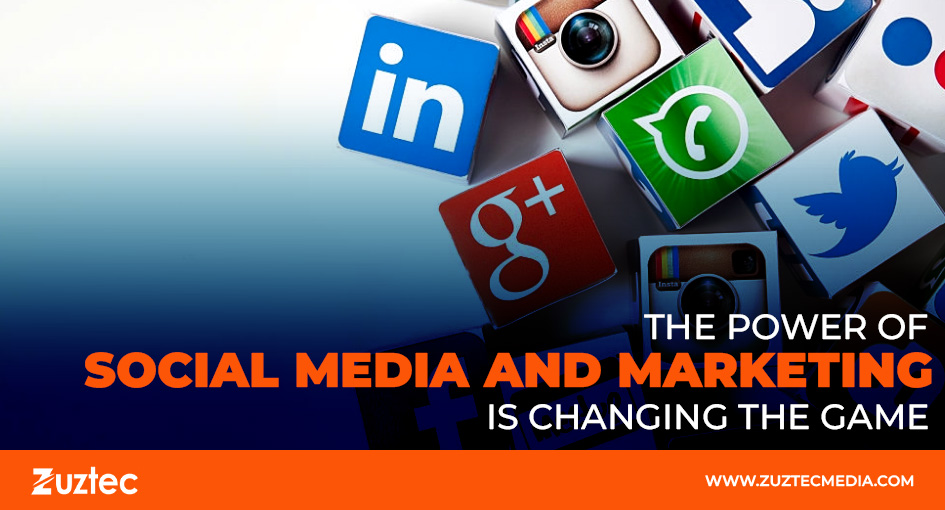
The Power of Social Media and Marketing in Digital Success
In today’s digital landscape, social media and marketing have become powerful tools for businesses to connect with their audience, build brand awareness, and drive revenue. With billions of active users across platforms like Facebook, Instagram, LinkedIn, and TikTok, businesses have unprecedented opportunities to engage with their target market. Traditional marketing methods, while still relevant, are no longer enough to maintain a competitive edge. Digital success now relies heavily on leveraging social media effectively.
Social media is more than just a place for entertainment—it’s a hub for communication, customer service, and brand storytelling. Businesses that integrate social media and digital marketing strategies can reach their ideal audience at the right time, enhance brand loyalty, and improve customer engagement. Whether through organic content, paid advertising, influencer partnerships, or viral campaigns, social media allows brands to make a lasting impact.
Moreover, social media marketing provides valuable analytics, helping businesses measure their efforts in real time. Unlike traditional advertising, where measuring ROI can be challenging, digital marketing on social media offers precise metrics like reach, engagement, click-through rates, and conversions. This data-driven approach enables businesses to refine their strategies for better performance.
In this article, we’ll explore how social media and digital marketing drive digital success, the key benefits for businesses, and strategies to maximize their impact. By understanding the power of social media, brands can unlock growth opportunities and establish a strong online presence in a competitive market.
How Social Media and Marketing Drive Digital Success
Social media and digital marketing are crucial in shaping a brand’s online presence and growth. Businesses use social platforms to engage with audiences, promote products, and build brand loyalty. Effective marketing strategies on social media enhance visibility, attract leads, and increase conversions. With billions of users online, leveraging social media is essential for staying competitive. A strong digital marketing approach ensures long-term success in today’s fast-paced digital world.
The Role of Social Media in Marketing
Social media has transformed the marketing landscape by enabling businesses to engage directly with their audience. Unlike traditional advertising, where communication is one-sided, social media fosters two-way interactions, allowing brands to build relationships with potential and existing customers. Here’s how social media contributes to marketing success:
1. Brand Awareness and Visibility
Social media platforms provide a global stage for brands to showcase their products and services. By consistently sharing valuable content, social media and marketing efforts can increase visibility and attract new followers. Features like hashtags, trends, and viral content help businesses reach a broader audience, driving engagement and brand awareness.
2. Customer Engagement and Community Building
One of the greatest advantages of social media is its ability to foster engagement. Brands can interact with customers through comments, messages, live sessions, and polls. Creating a community around a brand encourages customer loyalty and trust.
3. Cost-Effective Marketing
Social media marketing is much less expensive than traditional forms of advertising. Businesses can run targeted ad campaigns on platforms like Facebook and Instagram with flexible budgets. Organic reach, influencer collaborations, and user-generated content also help brands grow without heavy investment.
4. Real-Time Analytics and Insights
Social media platforms provide advanced analytics that help businesses track performance. Marketers can analyze engagement rates, impressions, and conversions, allowing them to refine their strategies and achieve better results.
Key Strategies for Social Media Marketing Success
To leverage the full potential of social media and marketing, businesses need well-planned strategies. Here are some essential tactics:
1. Define Your Goals and Audience
Before launching a social media campaign, businesses must define their objectives. Whether the goal is brand awareness, lead generation, or customer engagement, a clear strategy ensures better results. Additionally, understanding the target audience helps create relevant content.
2. Create High-Quality Content
Content is the foundation of social media marketing. Brands should focus on creating valuable, engaging, and shareable content, including blog posts, videos, infographics, and interactive stories.
3. Utilize Paid Advertising
Algorithm adjustments may reduce social media’s organic reach. Investing in paid ads ensures content reaches the right audience. Platforms like Facebook and LinkedIn offer detailed targeting options, helping businesses connect with specific demographics.
4. Engage with Followers
Social media success isn’t just about posting content—it’s about engagement. Responding to comments, conducting polls, and participating in discussions help brands build stronger relationships with their audience.
5. Leverage Influencer Marketing
Collaborating with influencers can amplify brand reach. Dedicated followers of influencers rely on their advice. Partnering with the right influencers can boost credibility and attract new customers.
6. Monitor Trends and Stay Updated
Social media trends evolve rapidly. Businesses should stay updated on the latest trends, platform updates, and consumer behaviors to keep their marketing strategies relevant.
Maximizing the Impact of Social Media and Marketing
To achieve digital success, businesses must optimize their social media and digital marketing strategies. This involves consistent content creation, audience engagement, and data-driven decision-making. Leveraging paid advertising, influencer collaborations, and trend monitoring can enhance brand visibility. Social media analytics help businesses refine their approach for better results. A well-executed marketing strategy ensures sustainable growth and a competitive edge in the digital landscape.
To conclude, the power of social media and marketing in digital success cannot be overstated. It enables businesses to connect with their audience, increase brand visibility, and drive engagement in ways traditional marketing never could. By implementing effective social media strategies—creating high-quality content, engaging with followers, leveraging paid advertising, and collaborating with influencers—brands can establish a strong online presence. In today’s competitive market, businesses that embrace social media and digital marketing will have the upper hand in achieving long-term growth and success.

